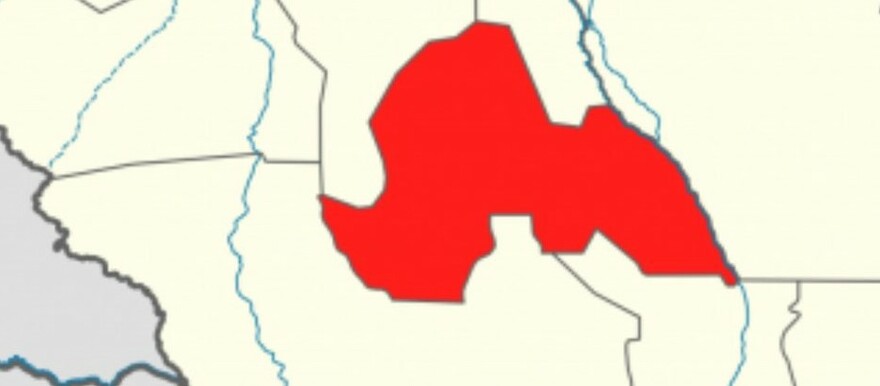A two-day forum that brought together commissioners from the eight counties of Lakes State and senior officials last Friday concluded their discussions with clear resolutions on how to address challenges facing the state.
The forum started on Thursday last week.
Prominent among the resolutions were: demarcation of school land, transparency in revenue collection, provision of communications services to rural areas and digging water reservoirs. Lakes State has experienced devastating inter-communal violence over scarce resources, especially access to pasture and water for their cattle and other livestock. There has been a dispute over the waters in Toch wetlands.
Commissioner for Rumbek North County, Arop Kumbai told Radio Tamazuj that they discussed education, road construction and health issues as well as matters of insecurity within Lakes state and cross-border communal violence.
He said at the border, there is an issue between Luacjang and Pakam communities. Leaders of counties across the state are working tirelessly to address the problem of cyclical inter-communal violence, revenge attacks and cattle rustling.
“The Governor of Lakes State and Governor of Warrap State are working together to improve the security situation in Pakam and Luacjang community,” Commissioner Arop said.
“In the commissioner’s forum, we have also discussed the issue of Bargel as a matter that needs to be addressed with immediate attention. We, the commissioners, have expressed our challenges and there was a positive response from the governor and the ministers regarding the challenges facing the commissioners in all the counties. We are happy that we have raised our issues of concern and have got positive answers about them in the forum,” Arop declared.
Commissioner Arop also insisted that national and state governments must prioritize access to education. He explained that Lakes State already has strong policies on protecting the properties and lives of residents. He shared that prioritizing quality education would provide a holistic approach to the problems affecting Lakes state. Lakes state governor has tasked the commissioners from the eight counties to ‘make Education the first policy priority for Lakes state.
He said Rumbek North County is one of the least in terms of education in South Sudan because there is no primary eight (P.8) and secondary school education to date. Commissioner Arop revealed that senior state government officials are coming together to address this problem.
“Rumbek North County is lagged behind in terms of education, and nobody, whether an Arab or white man, will come and help that community. The teachers, education officers and community chiefs and myself as a commissioner are the ones to do something for education in Rumbek North county,” he said.
“Another challenge commissioners are facing is lack of mobility in the counties, Payams and bomas and the other challenge is lack of feeder roads. You can only move from Payam to Payam, and boma to boma on foot. We also talked about vehicles for police and SSPDF. Police inspectors move on foot and in case of emergency, they run and the same applies to SSPDF,” he shared.
He said water points in some payams, villages and cattle camps are scarce, making it difficult for animals and people to access safe drinking water.
UNMISS humanitarian division field officer in Rumbek, Khalifa Farrah, has thanked the Ministry of Local Government for convening the commissioners’ forum.
“I think you have achieved more than what we thought you could achieve within two days. What I have seen in the last two days was an exchange of livelihood, exchange of ideas, and this promotes coherency between the two levels of government at state and county administrative levels,” Khalifa explained.
“None of the two sides has a monopoly of ideas over the other and when we put our heads together, we are going to bring a lot of good things on the table and from there, we can drive policies and legislations. This is what is called inclusive governance,” Khalifa informed. He added that the ‘Commissioners’ Forum’ will be convened yearly through a partnership between UNMISS and the state Ministry of Local Government.
He urged the commissioner of Cueibet county to learn from Rumbek East county, in which two bitter rivals clans of Thuyic and Gony are in one cattle camp.
“Local authorities have a role to play in making sure that the people in the community are participating in the constitution-making processes and the constitution is the future of the country. You also have a role to rally your people to vote wisely in the coming elections. Voting is a civic duty and you have a responsibility to rally your people to vote wisely and to vote for good leaders so that this issue of lack of service delivery can be handled by your leaders and you also have a role to create a conducive environment for free and fair elections,” he said.
The minister of Local Government in Lakes State, Chol Muorwel, said that the recommendation from the Commissioner’s Forum included organizing a dialogue between conflicting communities as a way of fostering peace in the community.
“Another recommendation is the construction of water reservoirs to reduce competition of pastoralists over water points. It is also in the recommendation that the national ministry of Information, Communication and Postal Service should provide network services to remote rural areas to improve people’s access to communication, particularly in Bargel. These places have insecurity issues and it will make it easy to get information,” he suggested.
He said the forum also recommended that revenues must be collected in a transparent manner. This will allow the state government to know what amounts are recorded and match it with what is collected and remitted to the state government.




